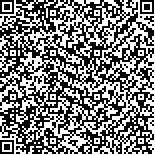| 引用本文: |
叶勇, 赵凡, 贺思雨, 童毅, 朱沁泉, 张涤.基于JAK-STAT信号通路探究降气平喘汤干预支气管哮喘的作用机制[J].湖南中医药大学学报,2024,44(10):1754-1763[点击复制] |
|
| |
|
|
| 本文已被:浏览 2540次 下载 1343次 |
| 基于JAK-STAT信号通路探究降气平喘汤干预支气管哮喘的作用机制 |
| 叶勇,赵凡,贺思雨,童毅,朱沁泉,张涤 |
| (湖南中医药大学第一中医临床学院, 湖南 长沙 410208;湖南中医药大学第一附属医院, 湖南 长沙 410007) |
| 摘要: |
| 目的 基于Janus激酶-信号传导及转录激活因子(janus-activated kinase-singal transducers and activators of transcriprion, JAK-STAT)信号通路探究降气平喘汤干预支气管哮喘的作用机制。方法 选用SD雄性大鼠48只,随机分为空白组(等体积蒸馏水)、模型对照组(等体积蒸馏水)、泼尼松组[醋酸泼尼松片6.3 mg/(kg·d)]、中药低量组[降气平喘汤3.96 mL/(kg·d)]、中药中量组[降气平喘汤7.92 mL/(kg·d)]、中药高量组[降气平喘汤15.84 mL/(kg·d)],每组8只。除空白组外,各组均于第0、7天用卵清蛋白(ovalbumin, OVA)致敏溶液腹腔注射致敏,第14天开始用OVA致敏溶液连续雾化14 d。造模成功后连续灌胃给药14 d。取肺泡灌洗液(bronchoalveolar lavage fluid, BALF)及肺组织进行HE染色、Masson染色、免疫组织化学病理学检测;ELISA法检测BALF中白细胞介素(interleukin, IL)-5、IL-13、肿瘤坏死因子(tumor necrosis factor-α, TNF-α)、γ-干扰素(interferon-γ, IFN-γ)含量;Western blot法检测肺组织中JAK1、JAK2、STAT3、p-STAT3、STAT5、p-STAT5蛋白表达水平;RT-PCR法检测肺组织中JAK1、JAK2 mRNA表达水平。结果 模型对照组大鼠出现肺泡壁增厚,肺泡塌陷和支气管、血管厚度增厚,大量炎性细胞浸润及上皮细胞紊乱、脱落、支气管纤维结缔组织增生,肺脏组织纤维化,大量胶原纤维沉积。与泼尼松组相比,中药低、中、高量组α-平滑肌肌动蛋白(α-Smooth muscle actin,α-SMA)、JAK1蛋白表达水平和p-STAT3/STAT3、p-STAT5/STAT5升高(P<0.05),中药低、中量组IL-5、IL-13含量及JAK2蛋白表达水平升高(P<0.05),中药低量组TNF-α含量和JAK1、JAK2 mRNA表达水平升高(P<0.05),IFN-γ含量降低(P<0.05)。与中药低量组相比,中药中、高量组α-SMA、JAK1、JAK2蛋白表达水平和p-STAT3/STAT3、p-STAT5/STAT5降低(P<0.05),IFN-γ含量升高(P<0.05),中药高量组TNF-α、IL-5、IL-13含量降低(P<0.05)。与中药中量组相比,中药高量组α-SMA、JAK2蛋白表达水平、p-STAT3/STAT3、p-STAT5/STAT5降低(P<0.05),IL-5含量降低(P<0.05)。结论 降气平喘汤可能通过调节Th1/Th2细胞因子平衡,进而调节JAK-STAT信号通路转导来改善支气管哮喘气道炎症及缓解气道重塑。 |
| 关键词: 支气管哮喘 降气平喘汤 JAK-STAT信号通路 Th1/Th2平衡 作用机制 |
| DOI:10.3969/j.issn.1674-070X.2024.10.006 |
| 投稿时间:2024-05-24 |
| 基金项目:湖南省自然科学基金(2024JJ6355);张涤儿科研究所专项(99-16)。 |
|
| Exploring the mechanism of action of Jiangqi Pingchuan Decoction in intervening bronchial asthma based on the JAK-STAT signaling pathway |
| YE Yong, ZHAO Fan, HE Siyu, TONG Yi, ZHU Qinquan, ZHANG Di |
| (The First Clinical School of Chinese Medicine, Changsha, Hunan 410208, China;The First Hospital of Hunan University of Chinese Medicine, Changsha, Hunan 410007, China) |
| Abstract: |
| Objective To exploring the mechanism of action of Jiangqi Pingchuan Decocion (JQPCD) in intervening bronchial asthma based on the Janus activated kinase-signal transducers and activators of transcription (JAK-STAT) signaling pathway. Methods A total of 48 male SD rats were randomized into blank group (with equal volume of distilled water), model control group (with equal volume of distilled water), prednisone group [with prednisone acetate tablets 6.3 mg/(kg·d)], low- [with JQPCD 3.96 mL/(kg·d)], medium- [with JQPCD 7.92 mL/(kg·d)], and high-dose Chinese medicine groups [with JQPCD 15.84 mL/(kg·d)], with 8 rats in each group. Except for the blank group, all groups were sensitized by intraperitoneal injection of ovalbumin (OVA) sensitization solution on days 0 and 7. From day 14 on, they were continuously nebulized with the OVA sensitization solution for 14 days. After the successful modeling, continuous gavage was administered for 14 days, and bronchoalveolar lavage fluid (BALF) and lung tissue were taken for HE staining, Masson staining, and immunohistochemical pathological testing; ELISA was used to determine the levels of interleukin (IL)-5, IL-13, tumor necrosis factor-α (TNF-α), and interferon-γ (IFN-γ) in BALF; Western blot was applied to examine the protein expression levels of JAK1, JAK2, STAT3, p-STAT3, STAT5, and p-STAT5 in the lung tissue; RT-PCR was used to check the expression levels of JAK1 and JAK2 mRNA in the lung tissue. Results The model control group of rats showed thickening of alveolar walls, collapse of alveoli, thickening of bronchi and blood vessels, infiltration of a large number of inflammatory cells, disorder and shedding of epithelial cells, proliferation of bronchial fibrous connective tissue, fibrosis of lung tissue, and deposition of a large amount of collagen fibers. Compared with the prednisone group, the levels of α-smooth muscle actin (α-SMA), JAK1 protein expression, and p-STAT3/STAT3, p-STAT5/STAT5 were increased in the low-, medium-, and high-dose Chinese medicine groups (P<0.05). Additionally, the levels of IL-5, IL-13, and JAK2 protein expression were increased in the low- and medium-dose Chinese medicine groups (P<0.05). The levels of TNF-α and JAK1, JAK2 mRNA expression were also increased in the low-dose Chinese medicine group (P<0.05), while the content of IFN-γ was decreased (P<0.05). Compared with the low-dose Chinese medicine group, the expression levels of α-SMA, JAK1, JAK2 proteins and p-STAT3/STAT3, p-STAT5/STAT5 were decreased in the medium- and high-dose Chinese medicine groups (P<0.05), while the content of IFN-γ was increased (P<0.05). The levels of TNF-α, IL-5, and IL-13 were decreased in the high-dose Chinese medicine group (P<0.05). Compared with the medium-dose Chinese medicine group, the high-dose Chinese medicine group showed a decrease in α-SMA, JAK2 protein expression levels, p-STAT3/STAT3, and p-STAT5/STAT5 (P<0.05), as well as a decrease in IL-5 content (P<0.05). Conclusion JQPCD may improve airway inflammation and alleviate airway remodeling in bronchial asthma by regulating the balance of Th1/Th2 cytokines, thereby modulating the JAK-STAT signaling pathway transduction. |
| Key words: bronchial asthma Jiangqi Pingchuan Dectction JAK-STAT signaling pathway Th1/Th2 balance mechanism of action |
|

二维码(扫一下试试看!) |
|
|
|
|




